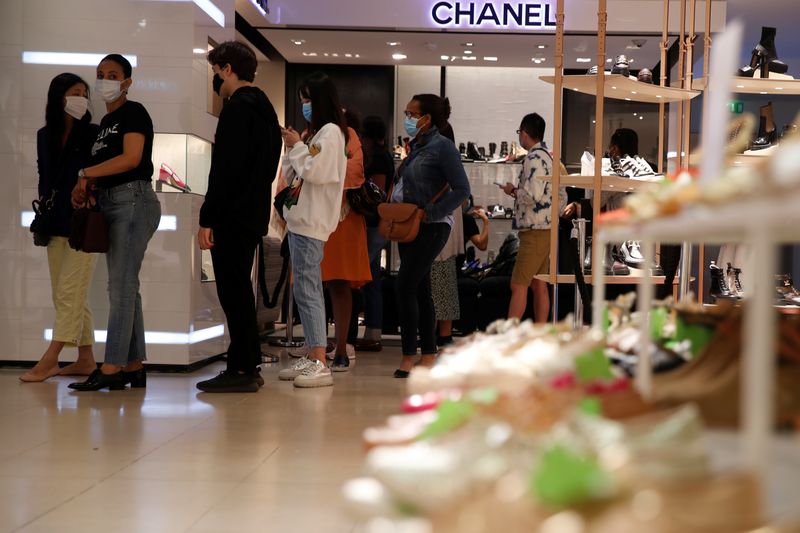By Richard Lough
PARIS (Reuters) - French consumer confidence unexpectedly dropped in July amid signs of a rebound in COVID-19 infections, as fears about unemployment remained high and people increasingly felt the need to save money, a monthly survey showed.
The INSEE official statistics agency on Wednesday said its consumer sentiment index fell to 94 from a revised 96 in June, missing an average forecast for 99 in a Reuters poll of economists' expectations.
The data underlines the difficulties the government - which has spent heavily on furlough schemes to keep workers in jobs - faces in persuading consumers to spend their own money to help pull the economy out of its deepest recession since World War Two.
"No V-curve for household confidence in France," economist Charles-Henri Colombier tweeted. "Expectations of a jump in unemployment similar to (the financial crisis) of 2008-2009."
Consumer sentiment fell after President Emmanuel Macron put France under one of Europe's strictest coronavirus lockdowns in mid-March, but it had been recovering after a steady easing of restrictions began in mid-May.
The renewed decline in July came as new COVID-19 infections flared, leading France and some other European countries to impose new curbs on public life. France made wearing a face mask in enclosed public spaces mandatory on July 20.
Health Minister Olivier Veran said France was not facing a second wave but that the epidemic continued and citizens must not drop their guard.
Euro zone figures due on Thursday will likely show France is not alone. Flash data on July 23 showed consumer confidence deteriorated across the single currency bloc.
The INSEE survey showed the number of people who considered it the right time to save jumping sharply above the long-term average, the third straight monthly increase.
The number of households that thought their standard of living had improved over the past 12 months also dropped, for the third consecutive month. Households' concerns about unemployment eased, but remained high after hitting a seven-year peak in June.
"Today's figures confirm that the scale of the rebound in economic activity in the third quarter will be mainly determined by household consumption," ING said in a briefing note.

The government expects the euro zone's second-biggest economy to contract by 11% this year, with as many as 800,000 jobs at risk.